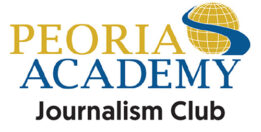When people see our friend group together, they often notice what stands out. They may see that one of us uses a wheelchair. But in reality, we’re just normal teenagers.
 Yes, one of our friends has Cerebral Palsy (CP), which means he does some things differently. Sometimes, it takes him longer to complete tasks, but he is fully capable of doing everything that others can. He enjoys trying new things and participates in sports like wheelchair basketball, lacrosse and golf.
Yes, one of our friends has Cerebral Palsy (CP), which means he does some things differently. Sometimes, it takes him longer to complete tasks, but he is fully capable of doing everything that others can. He enjoys trying new things and participates in sports like wheelchair basketball, lacrosse and golf.
One of our favorite things to do together is visit Noodles & Company. We love going there not only because the food is great, but also because it’s easy for him to navigate the space.
Disability access remains one of the biggest yet most overlooked issues in modern society. Many people with disabilities face everyday challenges, including discrimination, negative attitudes, and inadequate accommodations. Understanding these struggles is essential for fostering a more inclusive and equitable world.
On a broader scale, discrimination and inaccessible environments create significant barriers for people with disabilities. One major issue is fair wages. In some countries, employers are legally allowed to pay disabled workers less than minimum wage simply because of their disability. This unfair practice can lead to financial instability and even homelessness. Businesses must do better to ensure fair treatment and equal opportunities for all individuals.
Additionally, people with disabilities are often underestimated or even ridiculed for their perceived limitations. Many assume they are incapable of achieving success, but the reality is that all people are adaptive. That’s why we believe the term “adaptive” is a better way to describe individuals with disabilities — they continually adjust and find ways to thrive in their environments. Diverse perspectives and abilities are valuable in problem solving and innovation, making inclusion essential for progress.
Sinéad Burke, a well-known activist for disability rights, once said, “Disability is articulated as a struggle, but disabled lives are multi-faceted — brimming with personality, pride, ambition, love, empathy and wit.”
Unfortunately, society often sees people with disabilities as burdens, diminishing their confidence and ability to work alongside others as equals. No one appreciates being stared at, whispered about, or subjected to harmful stereotypes. While adaptive individuals may face unique challenges, with the right support and accommodation, they are just as capable as anyone else.
We hope that more people work toward eliminating discrimination and prejudice against adaptive individuals and fostering a world where everyone is treated with dignity and respect.
— By Sommer Jaffer, Paige Mauritzson and Ethan Rocke

Recent Comments